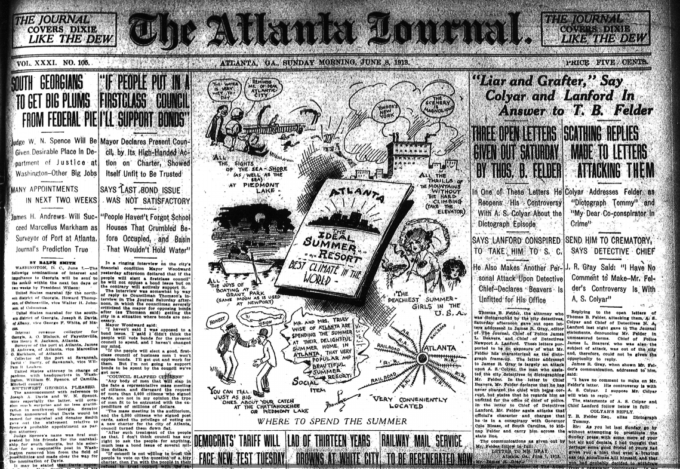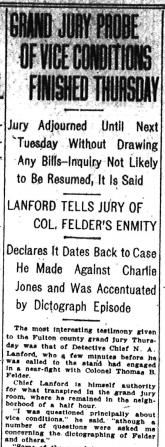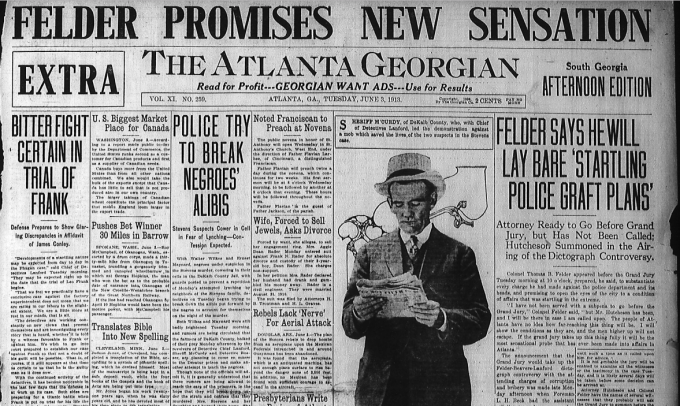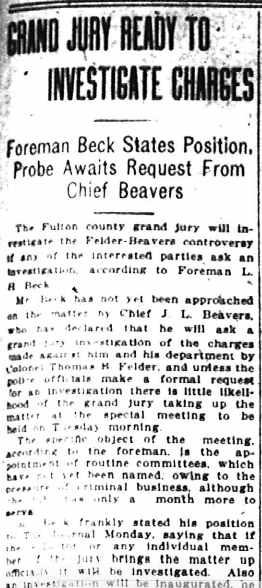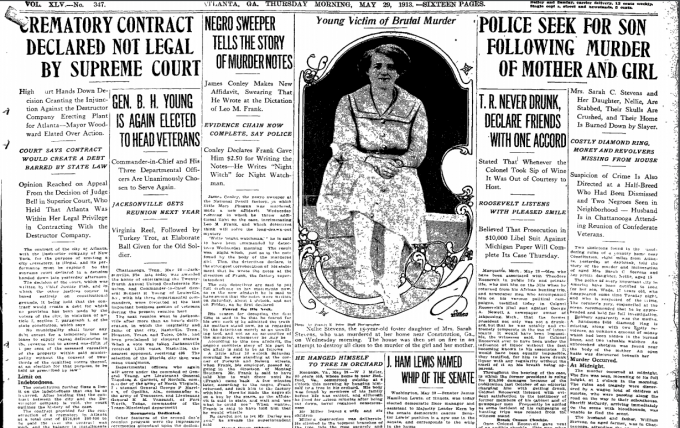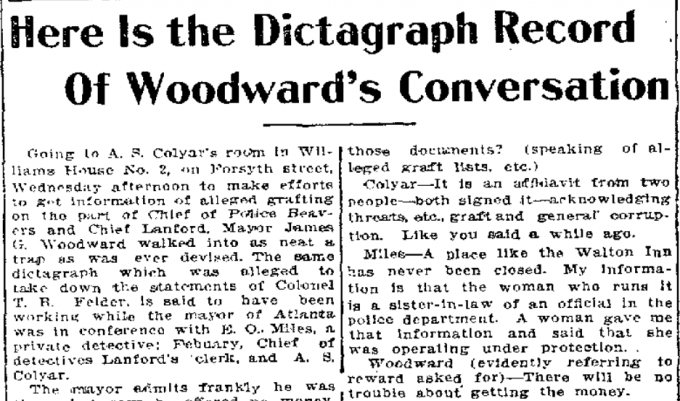 Another in our series of new transcriptions of contemporary articles on the Leo Frank case.
Another in our series of new transcriptions of contemporary articles on the Leo Frank case.
The Atlanta Constitution
Sunday, June 22, 1913
Journey Had No Relation to the Phagan Mystery or Dictagraph Incident, He Says.
Colonel T. B. Felder returned Saturday from a six-day trip to Cincinnati. Much speculation was created by his departure for Ohio last Sunday and it was hinted that he had made the journey in interest of his recent connection with the famous dictagraph plot.
It was also reported that he had gone [on] behalf of the Mary Phagan investigation, in which he has been an active figure. His departure within less than twenty-four hours after Solicitor General Hugh Dorsey had left the city gave rise to this suspicion.
He declared to a Constitution reporter last night, however, that the Cincinnati trip had been made solely on personal business and that it had no connection at all with either the Phagan mystery or the dictagraph episode.
Colonel Felder stated that he had received no information from the grand jury regarding his demand that Gentry’s charges be investigated and that he did not know when that body would take up the proposed probe.
A. S. Colyar, a leading actor in the dictagraph case and instigator of the alleged trap, late in the afternoon visited Chief Lanford for a long conference and also had a few words with Chief Beavers.
Colyar says that he will remain in Atlanta for some time.
* * *

 Another in
Another in  Another in
Another in  Another in
Another in  Another in
Another in  Another in
Another in  Another in
Another in  Another in
Another in 
 Another in
Another in 

